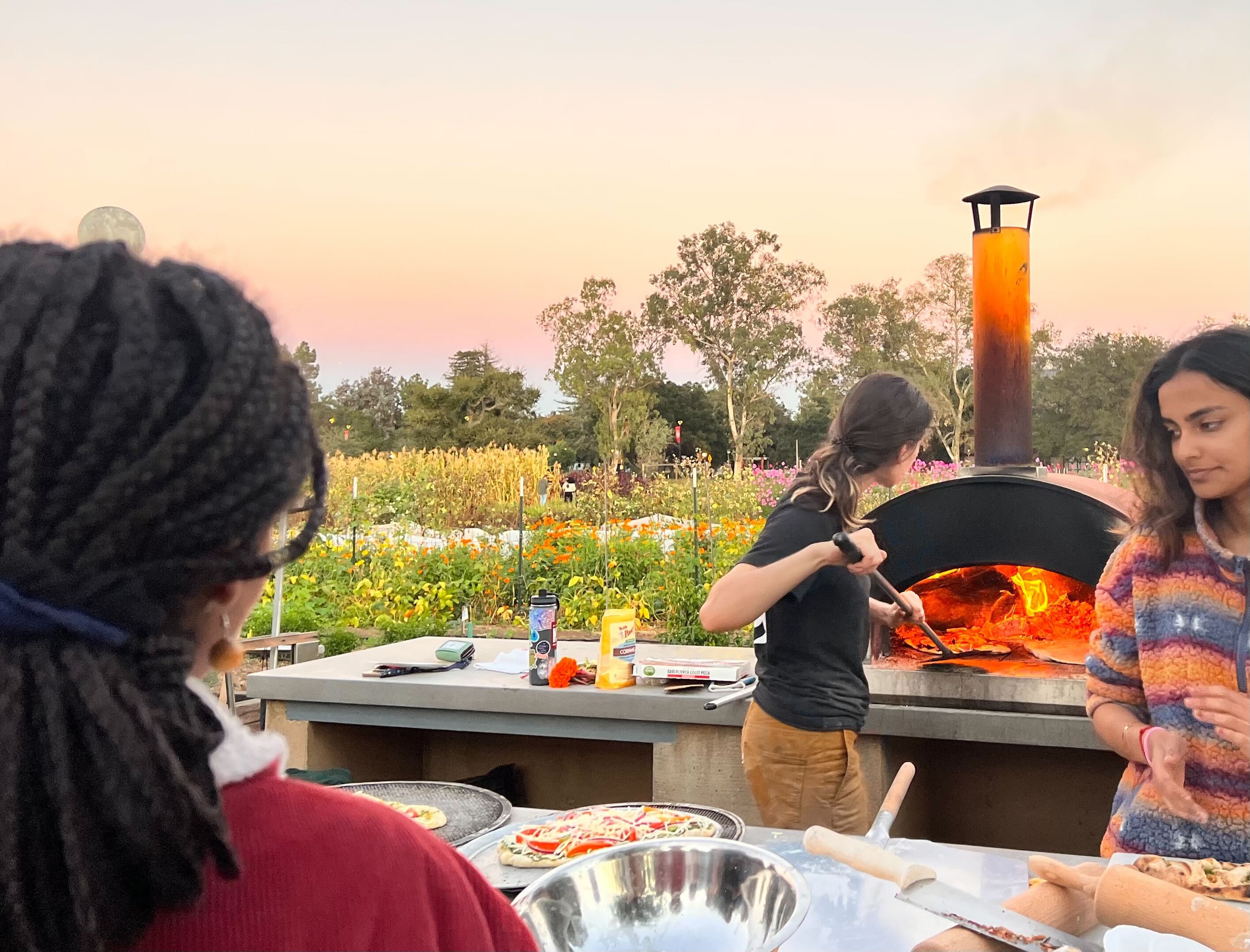Welcome to Serena Lee’s column about dining, food systems and sustainability at Stanford and the greater Bay Area. Join Serena at the intersection of food, society, faith and culture to explore our world through the everyday act of eating.
On a warm Friday evening, crowds of Stanford students showed up at the O’Donohue Family Stanford Educational Farm for a night of pizza-making and produce-picking hosted by Stanford Roots. Focused on food justice and sustainability, the student farming group brings together all kinds of students — or, as Roots member Richard Yuan ’25 says, “we’re a bunch of people who just love being outside.”
Founded in 2017 as the Stanford Farmers, the organization changed its name in 2019 to Stanford Roots to refocus its mission on the “human connection to land and indigenous knowledge in agricultural systems.” Today, Roots hosts community events aimed at bringing more Stanford members out to the O’Donohue farm and inspiring interest in agriculture, volunteer farm work and sustainable food systems.
Popular for their cooking events, sustainable-living skills workshops and annual “Earth Tones” celebration in the spring, Roots also exposes students to careers in farming, urban agriculture and food systems. Roots president Acacia Lynch ’24 says there is just something special about “being out here at the farm — where it is such a different pace from the rest of campus.”
Indeed, despite the cloud of impending midterms, it was a laid-back, languorous evening at the O’Donohue farm. Students meticulously topped their hand-rolled doughs with mozzarella, sliced figs and freshly-plucked herbs; many then opted for leisurely strolls around the patches of marigolds and pumpkins while waiting for their pizzas to cook.
”You take the time [at these events] to appreciate the food that you eat and the people you’re around. It’s a moment of real connection: eating and being together,” Lynch said.
The warm sentiment was certainly shared by the eventgoers, a mix of old-timers as well as many who were seeing the O’Donohue farm for their first time. “My friends and I look forward to pizza nights at the farm every year. People are eating pizza straight from the woodfire oven and the vibes are so good,” said Grace Lu ’23.
Roots’ primary mission is to educate students on sustainable agriculture and food justice. Lynch defines food justice as the process of “connecting the people who eat food to those who produce it” and bringing to light the inequities inherent in today’s mass production and distribution systems.
At a broader level, food justice entails being thoughtful about food accessibility in our direct community. As of last year, residents in nearly 900 Bay Area neighborhoods lived in food deserts (where at least one-third of the area’s population are more than a half-mile from the closest supermarket). Nationwide, food deserts disproportionately affect BIPOC and low-income families.
When asked about what Stanford can do, Lynch said she felt hopeful about Stanford’s potential role in enhancing local food justice after spending a summer working at the O’Donohue farm and observing the staff’s excitement about collaborating with farmers to create a more equitable food system. The O’Donohue farm offers bi-weekly volunteer opportunities and is open to all from Monday through Saturday.
Megan Chen ’25, a vice president of Roots, mentioned that Stanford has also systemized a mutually beneficial arrangement for consumers and farmers by donating excess produce to communities in need.
And within the Farm we call home, Stanford students can look to Roots’ community events to live out dreams of farm living and learn about sustainable food systems along the way. Reflecting on what it is like to lead Roots, Lynch laughed: “I’d always joked about wanting to go off and start a farm — and then I realized, I actually can!”
